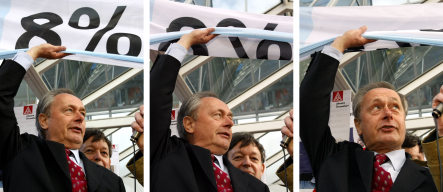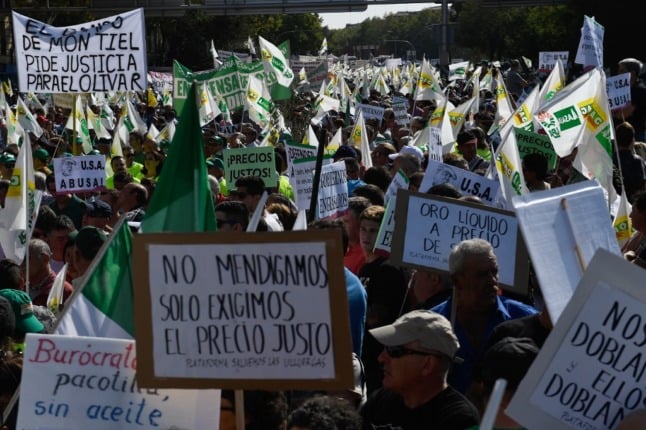The demand during the first round of pay negotiations is the highest the union has sought in 16 years and has jacked up tensions with industry as Germany faces an economic slowdown.
Representatives from IG Metall and the employers’ federation gathered in the western city of Darmstadt for talks that would initially cover the states of Hesse, Rhineland-Palatinate and Saarland for a 12-month period.
In Germany pay negotiations begin simultaneously in several regions and the first to reach an accord serves as a guideline for the rest of the country. Current pay accords in the auto, IT and household goods industries expire on October 31 so the outcome will be closely watched by all sides, including car makers like BMW, Mercedes and Volkswagen, and industrial giants like Siemens.
IG Metall argues that manufacturing workers have failed to benefit from several years of robust economic growth, and has threatened warning strikes from November if its demands are not met. “Conditions in the parts of the economy that produce goods and services are stable,” union chairman Berthold Huber told Frankfurter Allgemeine Zeitung on Thursday. “I am not saying things will keep moving upwards but I know that our much talked about traditional industry with its manufacturing output and force for innovation has moved this country forward. Look at countries such as the United States and Britain that have jeopardised it. It is a complete disaster.”
IG Metall estimates that profits in the metalworking and electronics
sectors soared 220 percent between 2004 and 2007. But employers group Gesamtmetall has blasted the union’s demand for an
eight-percent wage hike as “completely exaggerated” in light of a looming economic downturn. It has offered a smaller pay hike and a one-off payment.
The European Central Bank has also warned against too generous pay increases which could spur rising inflation. The negotiations are likely to be extremely acrimonious and set the tone for other pay settlements across Europe’s largest, export-driven economy.
Economy Minister Michael Glos said last week that the German government will have to “markedly revise downward” its economic growth forecast for 2009 – currently at 1.2 percent – due to the global financial crisis.




 Please whitelist us to continue reading.
Please whitelist us to continue reading.